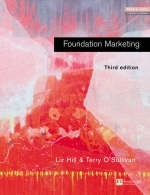
Online Course Pack: Foundation Marketing with Introduction to Marketing Generic Online Course Pin Card
Longman
978-0-582-84973-0 (ISBN)
- Titel ist leider vergriffen;
keine Neuauflage - Artikel merken
The conflict between Russia and America shaped the world for over four decades. It began in Europe but expanded to cover all continents. Both were universalist powers - they wanted every country in the world to copy their model of government and economy. They could not rest until the other side had been vanquished, and until the mid-1980's this included the prospect of nuclear war. In a new edition of one of the best-selling books in the Seminar Studies in History Series, Martin McCauley looks at the epic struggle between the two superpowers that put everyone in danger. In a clear and accessible manner, the book: gives a succinct summary of the main turning points in the conflict looks at how the whole world was sucked into the conflict shows how the arms race eventually bankrupted Russia discusses whether or not America and Russia have learnt anything from this confrontation Also containing a Chronology, Glossary and Who's Who of key figures, this second edition of Russia, America and the Cold War is essential reading for all students of twentieth century history. Martin McCauley is an experienced, seasoned writer of many books on Russian and international affairs.
Foreword to the second edition; Chronology; List of maps; PART ONE: THE CONTEXT: 1. INTRODUCTION: THE PROBLEM; Ideas and Beliefs (Ideology); Security; Culture; 2. THE COLD WAR IN PERSPECTIVE Cold War I; Brinkmanship; Detente; Cold War II and the end of the Cold War; The characteristics of the Cold War; PART TWO: ANALYSIS: 3. COLD WAR I: 1949-1953 The Berlin blockade ChinaNSC-68 The war in Korea; 4. TO THE BRINK AND BACK: 1953-1969 The search for a new relationship; Khrushchev takes over; The Geneva summit; The Hungarian Revolution; Asia; The Middle East; Other Third World states; Brinkmanship: Berlin Brinkmanship: Cuba The war in Vietnam; 5. DETENTE: 1969-1979 Forging a new relationship; A new president and a new approach; China changes sides: rapprochement with America; SALT; The German problem defused; The Middle East; The agenda changes as Ford takes over Africa; The Helsinki Accord; A new president sows confusion; Carter and Brezhnev reach agreement on SALT II but on little else; 6. COLD WAR II: 1979-1985; Detente fails to satisfy American aspirations; Carter's mixed record; Disastrous decision-making in Moscow: intervention in Afghanistan; Carter, Brzezinski and Cold War II; A new president and a new departure; Andropov and Reagan: missed opportunities; Failure and success for America; The ground is prepared for better relations with Russia; Reagan improves relations with China; 7. NEW POLITICAL THINKING AND THE END OF THE COLD WAR: 1985-1991; The new political thinking; The Gorbachev-Reagan summits; The Bush-Gorbachev relationship is slow to develop; Gorbachev and Europe: Our Common Home; Germany unites Gorbachev and Eastern Europe; Gorbachev and China; Gorbachev's domestic difficulties cause problems for Bush; The Gulf War leads to joint superpower policy; Gorbachev's problems mount; The last summit; The attempted coup and after; PART THREE: ASSESSMENT 8.THE JUDGEMENT Sources of hostility between the superpowers; Why did America come to guarantee west European security?; Why did Russia and America become systemic rivals?; A hard lesson for the superpowers: empires are liabilities; Is there a link between good government and economic prosperity?; Was the growth of the nuclear arsenals inevitable?; Why did the Cold War end?; America's changing doctrine; Was the US an imperialist power?; PART FOUR: DOCUMENTS: Glossary; Who's Who; References
| Verlagsort | Harlow |
|---|---|
| Sprache | englisch |
| Themenwelt | Wirtschaft ► Betriebswirtschaft / Management ► Marketing / Vertrieb |
| ISBN-10 | 0-582-84973-X / 058284973X |
| ISBN-13 | 978-0-582-84973-0 / 9780582849730 |
| Zustand | Neuware |
| Haben Sie eine Frage zum Produkt? |
aus dem Bereich


